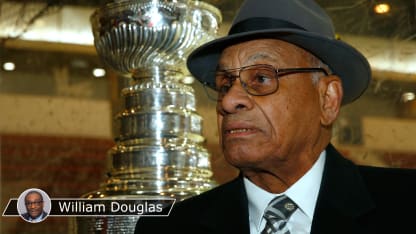The documentary, produced by former NHL executive Bryant McBride and directed by Laurence Mathieu-Leger, shows how O'Ree overcame racial prejudice and blindness in one eye to become the League's first black player when he debuted for the Bruins on Jan. 18, 1958. The film traces O'Ree's path from his boyhood home in Fredericton, New Brunswick, to his playing days, to his current role as NHL diversity ambassador, to his induction to the Hockey Hall of Fame in November 2018.
It also provides context to O'Ree's life journey which occurred in the throes of the U.S. civil rights era of the 1950s and '60s and shows that he's more than a hockey pioneer.
The film reveals that before he helped integrate the NHL, O'Ree broke the color barrier at his neighborhood barbershop in New Brunswick when he became its first black customer.
The producers also discovered that O'Ree's family roots go back to an escaped slave from Charleston, South Carolina, who fled to Canada.
"It's quite something to educate people who are not familiar with him, which is why I'm so happy that this documentary has been produced," said Pressley, a lead co-sponsor of a bill to award O'Ree the Congressional Gold Medal, the highest civilian honor bestowed by Congress. "When you tell people he's the Jackie Robinson of hockey, people, as was the case for myself, often remark 'I can't believe I didn't know that.' I know he's a stellar athlete, but I happen to think he's an incredible human being, a man of great integrity and character."
O'Ree made it to the NHL despite being blinded in his right eye in 1956, a hockey injury that he kept secret. He had a brief NHL career, but he enjoyed a lengthy minor league career.
O'Ree was enshrined in the Hockey Hall of Fame for his accomplishments off the ice, including his work across North America as the NHL diversity ambassador. In more than two decades, he has helped establish 39 grassroots hockey programs and inspired more than 120,000 boys and girls to play hockey.

